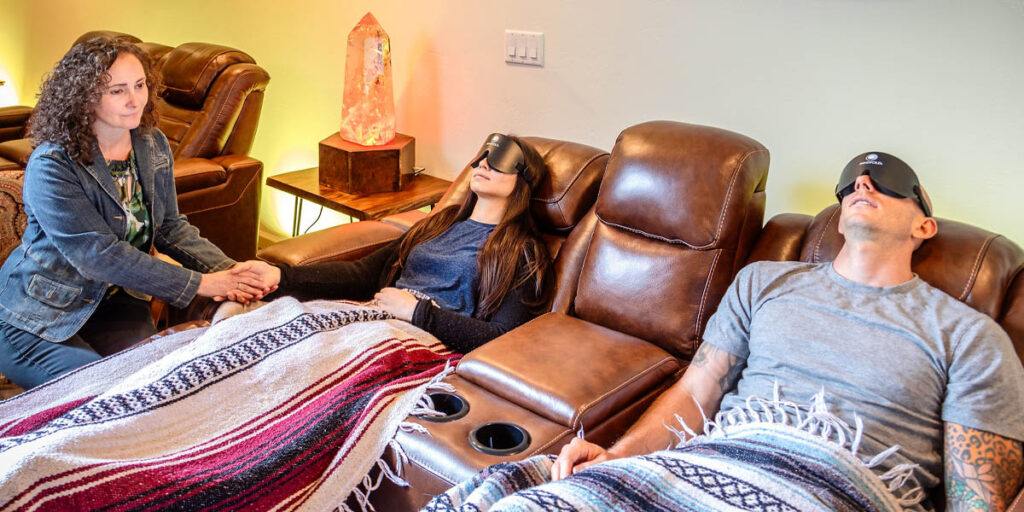Ketamine Treatment for Depression: Fast-Acting Relief & Expert Care For...
Continue Reading
Ketamine, traditionally known for its anesthetic properties, is showing promising results in treating Post-Traumatic Stress Disorder (PTSD), a condition that can arise after experiencing or witnessing traumatic events. Neuroplasticity MD Studies have explored ketamine’s efficacy in providing relief from PTSD symptoms, contributing to the evolving landscape of treatments for mental health disorders treatment, Ketamine for PTSD in Fort Lee.
A study conducted by the Icahn School of Medicine at Mount Sinai revealed that repeated intravenous ketamine infusions significantly reduced the severity of symptoms in individuals with chronic PTSD. The treatment’s, neuroplasticitymd effects were rapid and sustained for several weeks following the therapy in Effective Ptsd Treatment NJ.
This research is particularly significant as it represents the first randomized, controlled trial focusing on repeated ketamine administrations for chronic PTSD.
The study emphasized ketamine’s potential as a promising treatment for individuals who haven’t found sufficient relief from existing therapies.
Building on the understanding of ketamine’s impact on mental health, another landmark study in Ketamine for PTSD in Fort Lee highlighted in the American Journal of Psychiatry underlines ketamine’s effectiveness in treating PTSD.
This research supported the notion that ketamine could offer a new avenue for Ketamine for PTSD in Fort Lee, especially for those who have seen limited benefits from other methods. The study involved 30 participants receiving either ketamine or a psychoactive placebo over two weeks, with ketamine showing a significant reduction in PTSD symptoms compared to the placebo.
The improvements spanned several PTSD symptom clusters, including intrusions, avoidance, and negative alterations in cognition and mood.
These findings underscore the potential of Ketamine NJ in offering rapid and sustained symptom relief, marking a significant advancement in Ketamine for PTSD in Fort Lee strategies in Neuroplasticity MD.
These studies collectively highlight ketamine’s potential as a transformative treatment for PTSD, offering hope to those struggling with the debilitating effects of the disorder. The research paves the way for future investigations to further establish ketamine’s efficacy and safety over longer periods and in combination with other therapeutic interventions, such as trauma-focused psychotherapy. As the medical community continues to explore ketamine’s full potential, it holds promise as a viable treatment option for individuals with Ketamine for PTSD in Fort Lee, offering a new horizon for Ketamine Treatment New Jersey for Effective Ptsd Treatment.
Nestled within the community, Ketamine therapy centers in Fort Lee provide a beacon of healing, offering a lifeline to individuals seeking relief from the relentless grip of trauma. Through carefully administered infusions, Ketamine unlocks new avenues of healing, providing respite from the relentless intrusion of traumatic memories and symptoms. In a city where the echoes of past traumas may linger, Ketamine therapy stands as a testament to the resilience and the transformative power of modern medicine.
Moreover, the accessibility of Ketamine therapy in Fort Lee represents a paradigm shift in mental health care, breaking down barriers to treatment and offering a lifeline to those who have felt trapped by their symptoms. With compassionate clinicians guiding the way, individuals embarking on Ketamine for PTSD in Fort Lee are met with understanding, support, and a commitment to their holistic well-being.
As the city embraces this cutting-edge treatment modality, the landscape of mental health care in Fort Lee is evolving, paving the way for a future where Ketamine for PTSD in Fort Lee is not an insurmountable obstacle but a challenge that can be faced with courage and resilience, thanks to the transformative power of Ketamine therapy.
Ketamine Treatment for Depression: Fast-Acting Relief & Expert Care For...
Continue ReadingA New Look At How Ketamine Treatment Can Help with...
Continue ReadingKetamine Migraine Treatment: A Breakthrough in Lasting Migraine Relief Ketamine...
Continue ReadingDisclaimer: The medical information on this site is provided as an information resource only, and is not to be used or relied on for any diagnostic or treatment purposes. This information is not intended to be patient education, does not create any patient-physician relationship, and should not be used as a substitute for professional diagnosis and treatment. Always consult your healthcare provider before making any healthcare decisions or for guidance about a specific medical condition.